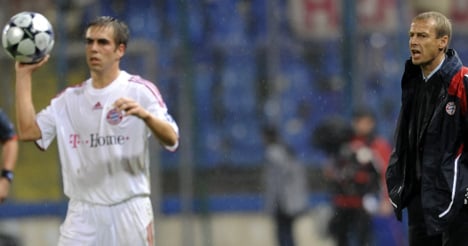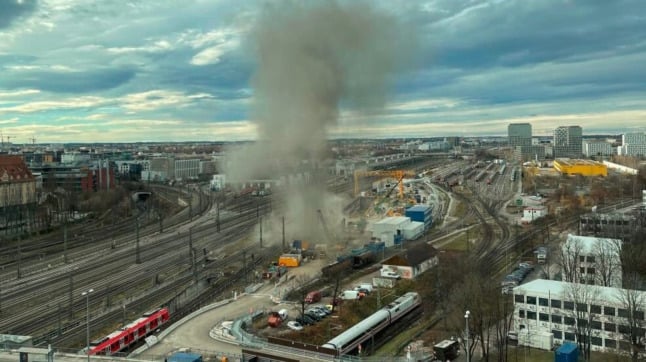In excerpts published by Bild newspaper, Lahm writes in “The Subtle Difference” that Klinsmann, a former German national team coach who didn’t last even a full season managing Bayern, appeared out of his depth.
Lahm writes that things quickly fell apart after Klinsmann took the helm in Munich in 2008. Lahm charges that Klinsmann, who is now the US National team’s head coach, was so interested in physical fitness that he neglected tactical elements.
“We players had to get together independently before the game to discuss how we wanted to play,” he recounts.
Klinsmann was sacked after less than a year in the job following disagreements
between him and club management.
The 27-year-old Lahm singles out other coaches for criticism, including Felix Magath, who coached Bayern for three years beginning in 2004 and Louis van Gaal, the Dutchman who led the squad between 2009 and April of this year.
He describes Magath as putting relentless pressure on his players, so much so that he lost their support. By the time Magath left, Lahm writes, a “stress fracture” had developed between trainer and team.
Lahm believes van Gaal had “high expectations.” But, he argues, the coach was unwilling to budge from his philosophies and or try new things. Under him, defender Lahm writes, Bayern Munich neglected defence and focused on scoring as many goals as possible.
On many occasions, Lahm says he spoke with van Gaal about the situation. But, he said the coach pretended to listen, then seemed to ignore him.
“In the end, he always decides as he saw fit,” Lahm writes.
Bild is pushing excerpts from Lahm’s book, which is being released on Aug. 29, throughout this week.
The Local/mdm



 Please whitelist us to continue reading.
Please whitelist us to continue reading.
Member comments